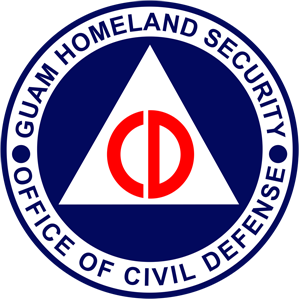COVID-19 test results are reported from multiple labs at varying times of the day. The Joint Information Center (JIC) will report cumulative COVID-19 test results that are officially reported to the Department of Public Health and Social Services (DPHSS) as well as lab results from the DPHSS Guam Public Health Laboratory (GHPL) once a day, unless a need for additional updates is warranted.
Cumulative Results
The following breakdown provides cumulative COVID-19 test results for Friday, July 3, 2020:
|
Laboratory |
New Cases Reported on Friday, July 3 |
Samples Tested (July 2) |
Total Negative Cases (March 12 - July 3) |
Total Confirmed Cases (March 12 - July 3, 2020) |
|
Department of Public Health & Social Services (DPHSS) Guam Public Health Laboratory (GPHL) |
2 |
359 |
8,184 |
183 |
|
Naval Health Research Center (NHRC)1/U.S. Naval Hospital (USNH) Guam2 |
2 |
120 |
1,875 |
60 |
|
Diagnostic Laboratory Services (DLS)2 |
1 |
85 |
1,886 |
28 |
|
Guam Memorial Hospital Authority (GMHA) Laboratory3 |
1 |
33 |
1,867 |
7 |
|
Guam National Guard (GUNG) Laboratory4 |
0 |
0 |
17 |
0 |
|
Guam Regional Medical City (GRMC) Laboratory5 |
0 |
0 |
434 |
0 |
|
Probable cases |
0 |
N/A |
N/A |
8 |
|
AS OF 1:50 PM, FRIDAY, JULY 3, 2020 |
Total Confirmed: 6 |
Total Samples Tested: 597 |
Total Negative Cases (March 12 - July 3): 14,263 |
Total COVID-19 Cases (March 12 - July 3): 286 |
1Beginning March 26, 2020
2Beginning March 31, 2020
3Beginning April 15, 2020
4Beginning April 23, 2020
5Beginning April 30, 2020
Six new cases of COVID-19 were reported today. Of the six, two cases tested positive for COVID-19 by DPHSS, two cases tested positive by the Department of Defense (DoD), one case tested positive from the Diagnostic Laboratory Services (DLS), and one case tested positive from the Guam Memorial Hospital Authority (GMHA).
DPHSS tested 359 individuals for COVID-19 on Thursday, July 2, 2020 with conclusive results. Two tested positive through DPHSS and 357 tested negative for SARS-CoV-2. Results include samples from COVID-19 community testing held at the Mangilao Senior Center/Mangilao Night Market on June 30 and COVID-19 community testing held at the Yigo Gym on July 2.
To date, there have been a total of 286 confirmed cases of COVID-19 with 5 deaths, 179 released from isolation, and 102 active cases. Of those cases, 240 are classified as civilians and 46 are military service members.
Profiles of Confirmed Cases
|
STATUS |
MEDICAL STATUS* |
GENDER |
RESIDENTIAL LOCATION |
TRAVEL HISTORY** |
AGE GROUP |
|
Civilian: 240 Military: 46 |
Stable: 100 Hospitalized: 02 Released: 179 Deaths: 05 |
Female: 132 Male: 154 |
North: 153 Central: 60 South: 30 Homeless: 03 Non-resident: 40 |
Dubai: 02 Japan: 01 Philippines: 12 Singapore: 01 U.S.: 10 Mexico: 01 |
90+: 01 80-89: 07 70-79: 17 60-69: 45 50-59: 45 40-49: 50 30-39: 50 20-29: 51 10-19: 17 0-9: 03 |
*Some cases that were previously released from isolation have tested positive through follow-up testing
**Some cases traveled to more than one country
Serology Tests Do Not Clear Individuals Who May Have Been Exposed to COVID-19
As COVID-19 is a new and rapidly evolving virus, significant updates are provided as available.
The U.S. Centers for Disease Control and Prevention (CDC) has offered the following guidance for COVID-19 antibody testing.
Confirming COVID-19 infection is generally done through Polymerase Chain Reaction (PCR) testing using various platforms. CDC has also developed a laboratory test to help estimate how many people in the United States have been infected with SARS-CoV-2, the virus that causes COVID-19. This test is referred to as a serology test or antibody test. The CDC will develop guidance for the use of antibody tests in clinical and public health settings.
An antibody test looks for the presence of antibodies, which are specific proteins made in response to infections. An antibody test is typically performed on a blood sample. Antibodies are detected in the blood of people who are tested after infection; they show an immune response to the infection. Antibody test results are especially important for detecting previous infections in people who had few or no symptoms.
An antibody test may not show if you have a current COVID-19 infection because it can take 1–3 weeks after infection for your body to make antibodies. To see if you are currently infected, you need a viral test. The viral tests identify the virus in samples from your respiratory system, such as a swab from the inside of your nose.
It is not known if the antibodies that result from SARS-CoV-2 infection will provide someone with protection (immunity) from getting infected again. If antibodies do provide immunity, it is not known how much antibody is protective or how long protection might last. CDC scientists are currently conducting studies to answer these questions.
CDC’s serologic test has been designed and validated for surveillance and research purposes. It is designed to estimate the percentage of the U.S. population previously infected with the virus – information needed to guide the response to the pandemic and protect the public’s health.
The CDC test is not currently designed to test individuals who want to know if they have been previously infected with SARS-CoV-2.
As more information becomes available through CDC, updates will be offered accordingly.
At the present time, antibody testing is reserved for surveillance and research purposes only, and is not indicated for “clearing” individuals who may have been exposed COVID-19.
DPHSS is planning to conduct a Special Populations Seroprevalence Survey (among contacts of positive COVID-19 cases) and a Community Level Seroprevalence Survey (a random survey of Guam’s population) in the future: https://www.cdc.gov/coronavirus/2019-ncov/cases-updates/community-level-seroprevalence-surveys.html
For inquiries on COVID-19, contact 311 through a local number, or call the Joint Information Center at (671) 478-0208/09/10.







